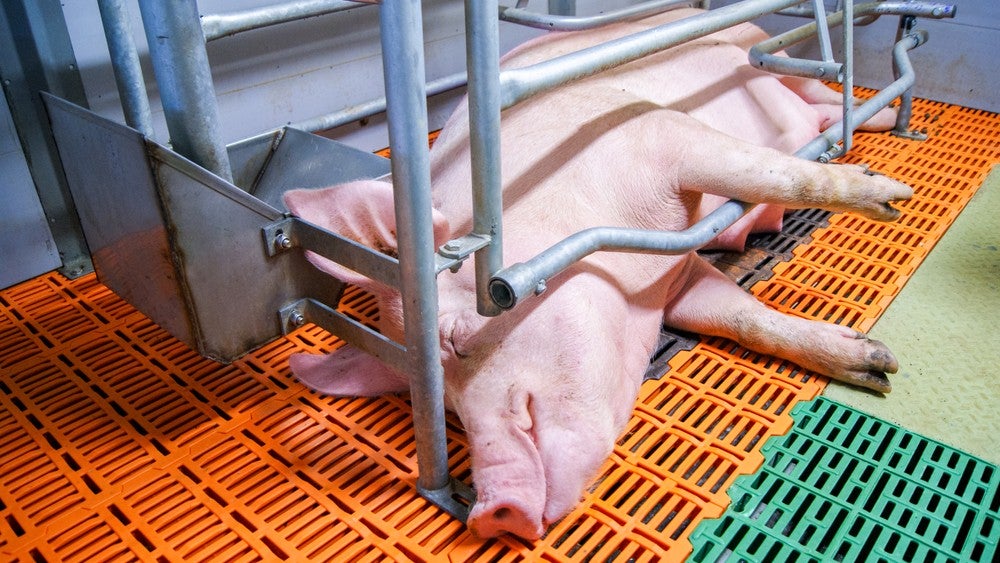
Each week, Just Food’s journalists select top tweets that summarise the social media buzz in our sector, underpinned by GlobalData’s analytics. These social media signals help us understand brand sentiments and the themes driving conversations on social platforms.
This new, thematic coverage is driven by our underlying Disruptor data which tracks all major deals, patents, company filings, hiring patterns and social media buzz across our sectors.
UK post-Brexit food import checks ‘facing further delay’
Amid reports the UK may again delay border checks on food entering from the EU, Anton Spisak, public policy researcher at the Tony Blair Institute, argues such a move would be prompted, not by “government readiness”, but rather by the macroeconomic environment. Amid already rampant food price inflation, there were fears that government plans to charge a flat-rate inspection fee of up to £43 on each consignment of food coming from the EU would drive up food prices further.
The most interesting thing about this latest episode is that this is no longer the question of government readiness but rather cost to consumers. It the most explicit acknowledgement by the UK government that Brexit trade barriers are inflationary. https://t.co/FUOn2QivvR
— Anton Spisak (@AntonSpisak) August 2, 2023
US pork sector split over Congress bill to throw out California animal-welfare law
Across the Atlantic, a federal bill that would overturn Proposition 12, a California animal welfare law, is dividing the US pork industry. Proposition 12 enforces minimum living standards for pigs and egg-laying hens, while prohibiting the sale of pork or eggs in California that comes from other states or countries unless it meets those standards. The National Pork Producers Council (NPPC), the pork industry trade group, supports the Ending Agricultural Trade Suppression (EATS) Act, having vigorously fought Proposition 12 since its introduction in 2018.
However, some US-based pork producers worry that the bill will flood the market with cheap imports from the likes of Chinese-owned company Smithfield and will prevent food companies from differentiating their products in the marketplace. Meanwhile, animal welfare groups have voiced concerns that the EATS Act will create a race to the bottom in terms of animal welfare standards, giving “a commercial advantage to the cruellest, most cheaply produced animal products in the country”.
The pork industry is divided over a federal bill, the EATS Act, that would overturn Prop 12, a California animal welfare law.
The industry’s trade group supports the bill, but some firms have already spent money to comply with Prop 12 and want it upheld.https://t.co/oK1kiRKoBi
— Leah Douglas (@leahjdouglas) August 2, 2023
Meat gives plenty to chew over
The role of the livestock sector in the climate crisis is a topic sure to inflame passions. This week, Camille Perrin, senior food policy officer at European consumer advocacy group BEUC, took exception to comments from the EU’s Agricultural Commissioner that their livestock production should not be lowered.
Elsewhere, Thomas Duffy, former vice president of the European Council of Young Farmers (CEJA), noted how meat consumption rose in France in 2022 – and compared that to the pressure on plant-based meat sales in certain markets.
Artificial sweeteners and risk of Type 2 Diabetes
Gary Ruskin, executive director of investigative public health group US Right to Know, draws attention to a study, published on 25 July, that found “positive associations between artificial sweetener intakes and increased Type 2 diabetes risk”.
Amid the World Health Organization’s recent warnings about aspartame and possible carcinogenicity to humans, the study adds to the case against chemical sweeteners as safe sugar alternatives.
“These findings of positive associations between artificial sweetener intakes and increased T2D [type 2 diabetes] risk strengthen the evidence that these additives may not be safe sugar alternatives.” Positive associations also observed for #aspartame, Ace-K & #sucralose.…
— Gary Ruskin (@garyruskin) July 26, 2023
